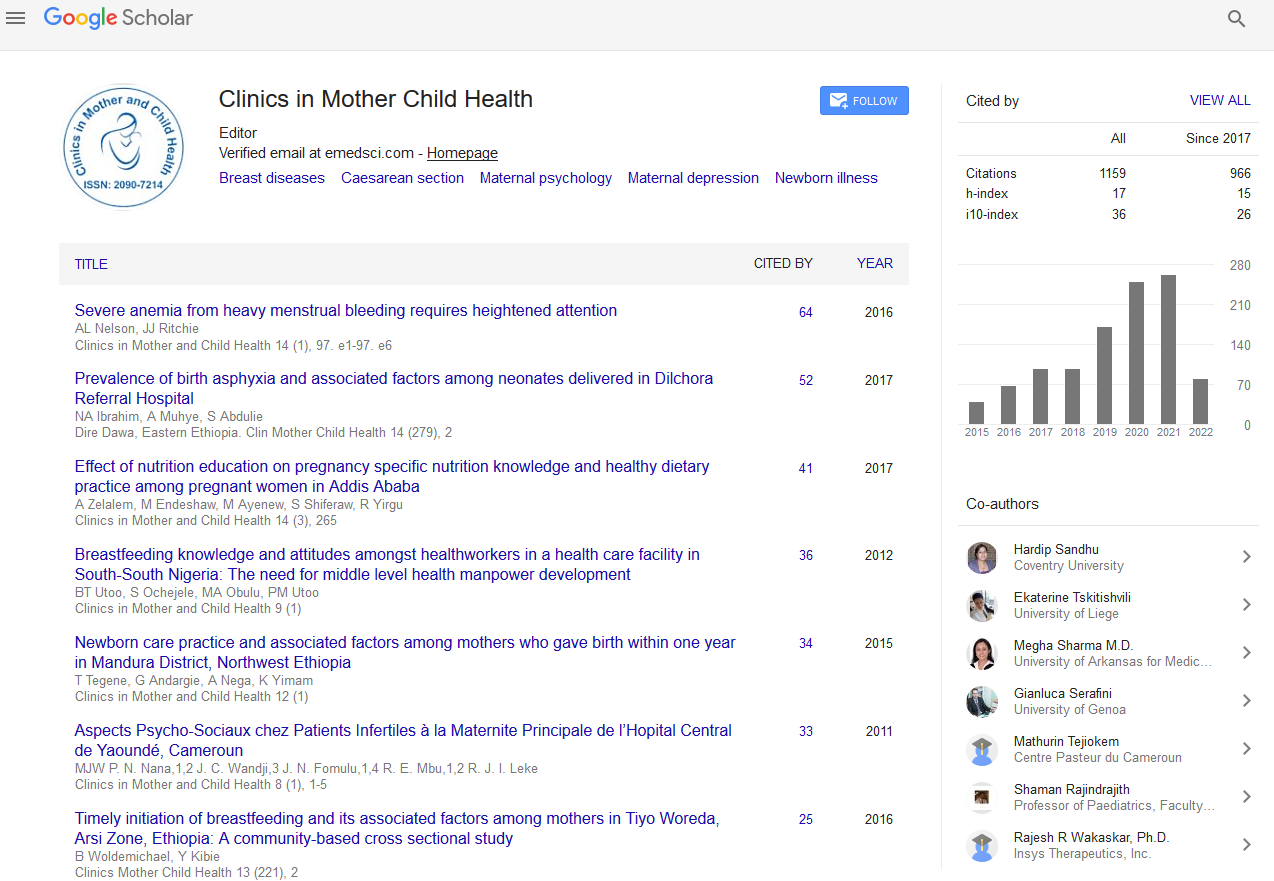Indexed In
- Genamics JournalSeek
- RefSeek
- Hamdard University
- EBSCO A-Z
- Publons
- Geneva Foundation for Medical Education and Research
- Euro Pub
- Google Scholar
Useful Links
Share This Page
Journal Flyer

Open Access Journals
- Agri and Aquaculture
- Biochemistry
- Bioinformatics & Systems Biology
- Business & Management
- Chemistry
- Clinical Sciences
- Engineering
- Food & Nutrition
- General Science
- Genetics & Molecular Biology
- Immunology & Microbiology
- Medical Sciences
- Neuroscience & Psychology
- Nursing & Health Care
- Pharmaceutical Sciences
Abstract
Cardiovascular Health: Cross-Generational Considerations
Cardiovascular disease (CVD) remains the number one cause of death for women in the United States. Although typically a time of low risk, the reproductive years of a woman’s lifetime offer an optimal time to address and prevent future cardiovascular disease by reducing risk factors such as dyslipidemia and early atherosclerosis. Although it is widely known that pregnancy is a state of increased insulin resistance, there are no current reference standards to define normal lipid parameters during pregnancy. Recent animal studies have reported findings that suggest uncontrolled dyslipidemia during pregnancy may potentially predispose or increase the inherent CVD risk for their offspring. Furthermore, women with uncontrolled diabetes, polycystic ovarian syndrome (PCOS) and specific metabolic disorders may all be at yet further increased lifetime risk of dyslipidemia, thereby affecting future health of the mother, her child and future generations. Despite the incomplete understanding of the pathophysiology relating these diseases with potential development of CVD, both in the mother and child, the importance of awareness and improvement in overall health remains paramount.


